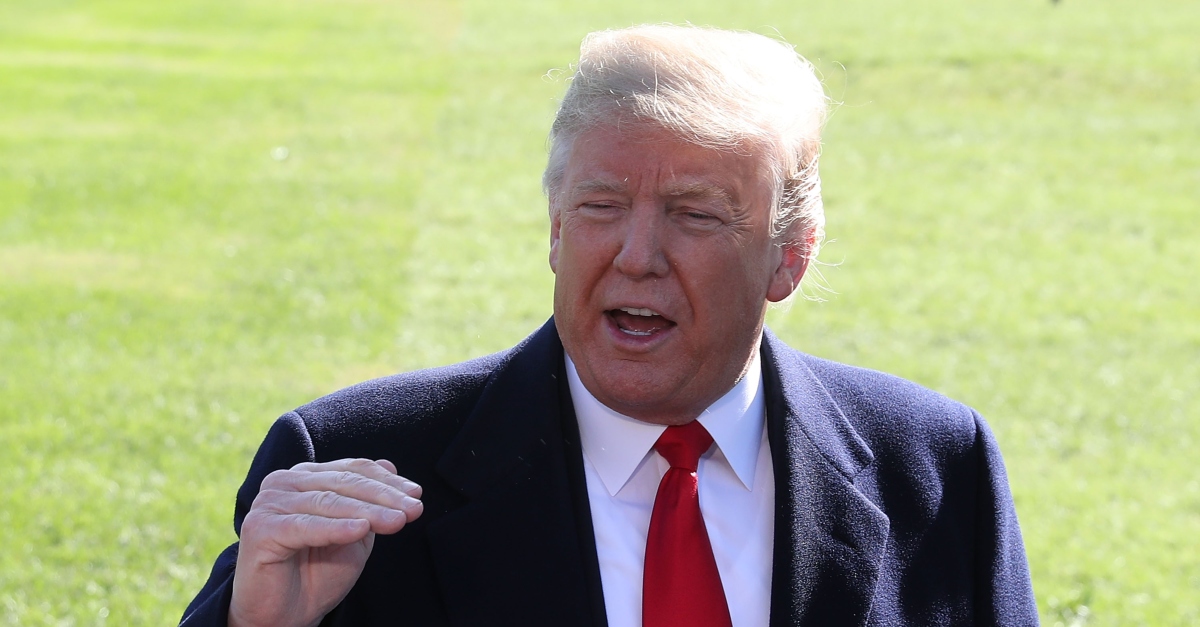
The dictionary has, once again, responded to a Trump-related non-troversy, this time by explaining the difference between a hyphen and an apostrophe.
The context: President Donald Trump, in a tweet sent just after 7 a.m. on Friday, criticized the media–CNN in particular–for being “dishonest.” While that’s certainly nothing new, one cannot immediately recall a time when the president expressed concern about a distortion of his punctuation.
Trump tweeted as follows:
To show you how dishonest the LameStream Media is, I used the word Liddle’, not Liddle, in discribing [sic] Corrupt Congressman Liddle’ Adam Schiff. Low ratings @CNN purposely took the hyphen out and said I spelled the word little wrong. A small but never ending situation with CNN!
The president was referring to reporting about his Thursday insult of House Intelligence Committee Chairman Rep. Adam Schiff (D-Calif.). He said: “Liddle’ Adam Schiff, who has worked unsuccessfully for 3 years to hurt the Republican Party and President, has just said that the Whistleblower, even though he or she only had second hand information, ‘is credible.’ How can that be with zero info and a known bias. Democrat Scam!”
People were quick to note that the president was actually upset about the removal of an apostrophe, not a hyphen. The dictionary was among them:
“For those looking up punctuation early on a Friday morning: A hyphen is a mark – used to divide or to compound words.
An apostrophe is a mark ‘ used to indicate the omission of letters or figures,” Merriam-Webster tweeted from its official account.
Apparently, by virtue of people having to look it up in the first place, plenty weren’t sure themselves about the difference between a hyphen and an apostrophe. The dictionary decided to set the record straight.
Merriam-Webster also decided to enter the fray back in July, when former Special Counsel Robert Mueller testified before the House Judiciary Committee. Mueller said the Russia Report did “not exculpate” President Trump of obstruction of justice, so Merriam-Webster decided to provide the definition of the Latinate word: “to be ‘exculpated’ is to be cleared from alleged fault or guilt.”
[Image via Mark Wilson/Getty Images]